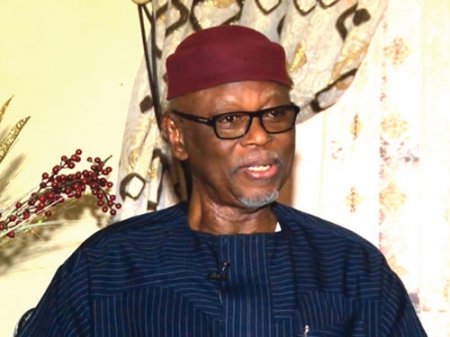Chief John Odigie-Oyegun is the National Chairman of the All Progressives Congress (APC). In this interview with Daily Trust, he speaks about his experiences and the party’s difficulty in making appointments.

What has been your experience in the effort to transform the APC from an opposition party into a governing party?
It has been tough, rough and, absolutely, stressful. But it is totally a rewarding experience. I did not know I still had so much to learn. I am still learning every day. We were dealing with groups that have never held power at the centre. So, there was a little bit of inexperience. Before we got into government, the vision was a lot clearer. The mission was definite-get rid of these people who are ruining the country, destroyers of our nation. So, we all rallied around that single banner. We succeeded. But once you succeed, the issue of putting everyone in position becomes problem number two. How do we fill the positions? Who is more important? Who occupies what position? Which are the most important groups in the party? What level of hold would they have on the structures? All those issues became divisive issues which, to be honest, we have not totally resolved. It gives rise to some of the problems that came up in the National Assembly and other places. But we are working on it. In the long run, people would start accepting the relative positions within the party. They will settle for what they have, or what they can get. The party will get into a state where people will start accepting the realities that we need everybody on board. That influence within the party is to be shared equitably. All those who contributed majorly to the victory must feel an equal sense of belonging, an equal sense of ownership. Once the individuals start accepting that it is not an all-or-nothing situation, this unfortunate problem would recede to the background.
If you have another opportunity to change one decision you took in the past, what will that be?
There are lots of decisions, not just one, some of which are private. If you want to limit it to the recent past, I would say the decision to call the meeting that took place on the day the National Assembly was inaugurated. That was a bad mistake. I was persuaded and I agreed to call that meeting. Had it been it did not take place, we probably won’t have a PDP person there today as the deputy Senate president. The anger within the leadership of the party may not have turned out as strong as it became.
What was your childhood like?
Read more in Daily Trust

What has been your experience in the effort to transform the APC from an opposition party into a governing party?
It has been tough, rough and, absolutely, stressful. But it is totally a rewarding experience. I did not know I still had so much to learn. I am still learning every day. We were dealing with groups that have never held power at the centre. So, there was a little bit of inexperience. Before we got into government, the vision was a lot clearer. The mission was definite-get rid of these people who are ruining the country, destroyers of our nation. So, we all rallied around that single banner. We succeeded. But once you succeed, the issue of putting everyone in position becomes problem number two. How do we fill the positions? Who is more important? Who occupies what position? Which are the most important groups in the party? What level of hold would they have on the structures? All those issues became divisive issues which, to be honest, we have not totally resolved. It gives rise to some of the problems that came up in the National Assembly and other places. But we are working on it. In the long run, people would start accepting the relative positions within the party. They will settle for what they have, or what they can get. The party will get into a state where people will start accepting the realities that we need everybody on board. That influence within the party is to be shared equitably. All those who contributed majorly to the victory must feel an equal sense of belonging, an equal sense of ownership. Once the individuals start accepting that it is not an all-or-nothing situation, this unfortunate problem would recede to the background.
If you have another opportunity to change one decision you took in the past, what will that be?
There are lots of decisions, not just one, some of which are private. If you want to limit it to the recent past, I would say the decision to call the meeting that took place on the day the National Assembly was inaugurated. That was a bad mistake. I was persuaded and I agreed to call that meeting. Had it been it did not take place, we probably won’t have a PDP person there today as the deputy Senate president. The anger within the leadership of the party may not have turned out as strong as it became.
What was your childhood like?
Read more in Daily Trust

